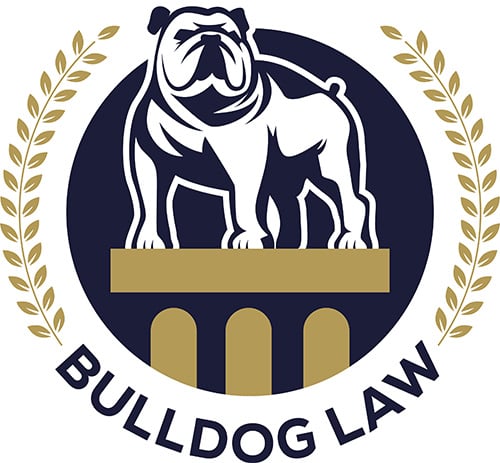In America, each of its 50 states has its own versions of the law. There are some things that are illegal in one state but legal in another. A few examples of that would be California’s medical marijuana laws, Oregon’s no self-serve gas stations policy, Nevada’s lottery prohibition laws, and so much more. Indeed, the United States of America is basically composed of self-ruling legal systems that are, in a way, sovereign and independent. But if there’s something that all 50 states agree on, it’s the fact that all of its people have rights that need to be protected, preserved, and acknowledged by the constitution. For this article, the 2018 California Constitution Article 1 – Declaration of Rights will be highlighted. The bill generally covers all fundamental rights that all citizens of California have. These rights are further elaborated by its 32 individual sections. Ultimately, it emphasizes that people are entitled to a free, unbothered, safe, and happy life.
Of course, we all should be able to enjoy a free, unbothered, safe, and happy life regardless if the constitution exists or not. Unfortunately, sometimes it does not happen to everyone; and that kind of life that every human being should have becomes a luxury. For that reason, we have police officers who are sworn in to safeguard our best interests. They are expected to uphold our rights, the constitution, and behave accordingly. Protecting the public from threats or circumstances that might impede their rights is their main priority. However, cops are human beings. And as human beings, they are inherently imperfect. There are other officers who will rise above their imperfections, but there are others who become the very thing they swore to fend off. Fortunately, the law recognizes that, in some special cases, citizens will have to rely on themselves to defend their constitutional and civil rights. After all, no one — not even police officers — can take away anyone’s right.
Your Rights Against Police Officers
Aside from California’s Declaration of Rights, your privileges and advantages are covered by a plethora of other statutes. It would take more than a single article to cover those laws individually. Hence, we have made a more comprehensible list that will summarize your rights when dealing with a police officer. Note that following this guide may help you escape a potentially dangerous and unsafe police interaction, but the results may still vary and the officer could still misbehave.
- Stopped/Detained/Arrested by cops – An officer may only detain, stop, or arrest a citizen if there is concrete proof that an offense has taken place, or if the cop reasonably supposes that a crime may have been committed. If you are not being detained, as per the enforcer’s words, then you are lawfully permissible to exit the scene. If it is otherwise, then stay in your place.
- Responding to inquiries – A cop technically may not demand a response from you when being queried. Likewise, they cannot arrest you simply for not being responsive. You have the complete jurisdiction to be uncommunicative. Do not disrespect, lie, or intimidate a police officer. Remember that anything you say can be used against you, so it is better to suppress your thoughts or until your attorney is present.
- Identifying yourself – An officer may request your ID card or pose queries about you if it is reasonably related to the circumstances that lead to the stop. For instance, a traffic stop will require drivers to present their IDs, license, and other necessary documents. Meanwhile, if you are interrupted by a police officer and they fail to provide a probable reason behind their decision, you can abstain to give them any information about your identity.
- Inspection – A cop may only inspect you or your belongings if they have an appropriate and logical assumption that you have possession of a deadly weapon or any object that may harm the police officer or civilians. If their motive for pursuing a search is outside this reason, then you may verbally express that you do not allow them to continue. Say this before or during the inspection and do not physically oppose the enforcer. This way, you’ll have a greater advantage should your case be raised in court.
- Warrants – All warrants are only valid if, and only if, it contains correct details about the person subjected by the warrant. If a police officer knocks on your door, presents a search warrant, only to read that your name has been incorrectly spelled, then the warrant is invalid. You and other people may oversee the search to ensure that there is no foul play taking place. Again, do not physically restrain law enforcement officials. Allow them to proceed with their actions even if wrongful.
- Vehicle stop – A cop may request for a driver’s license, ID, and other relevant papers. You are encouraged to respond if the personnel have some clarifications but as for inquiries about your destination, personal details, plans, etc., you are not obligated to respond. Also, if you are pulled over, do not leave your car. Instead, remain seated and verbally dictate everything that you will perform so your actions will not be labelled as something suspicious.
Punishments for Violating California Penal Code 148.6
If a cop or government official violates your rights, you may pursue a formal complaint against them and their respective department. However, you must be truthful in your accusation. Otherwise, you will be charged under California Penal Code 148.6. As stated in this penal code, any person who wrongfully accuses a police officer of misconduct is guilty of a misdemeanor. These are the penalties:
- 6 months in county jail
- A fine of up to $1,000
Legal Assistance
Ensuring peace and harmony is a community effort. Civilians are allowed to report bad cops as much as police officers are allowed to arrest bad civilians. While one is more qualified than the other, no one is above the law. If you believe you have been harassed, violated, or threatened by a law enforcer in California, seek assistance from a lawyer as soon as possible. At the Law Office of Raoul Severo, we are able to help you and make sure that misbehaving and uncivilized cops will not victimize another civilian again.


